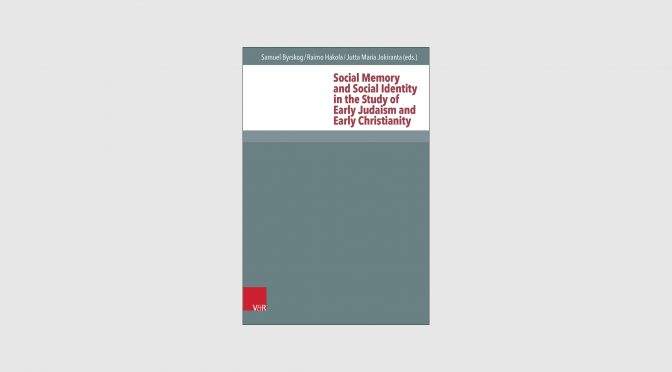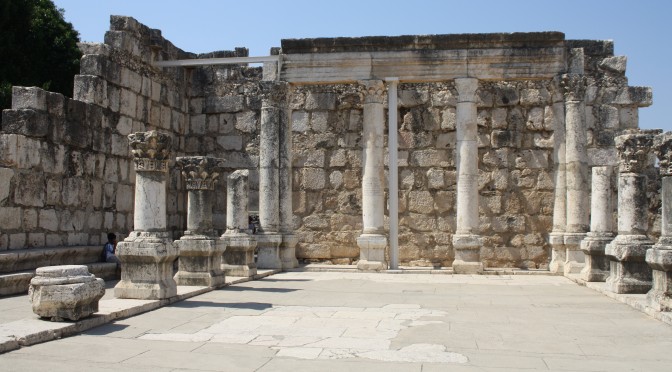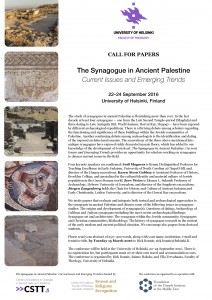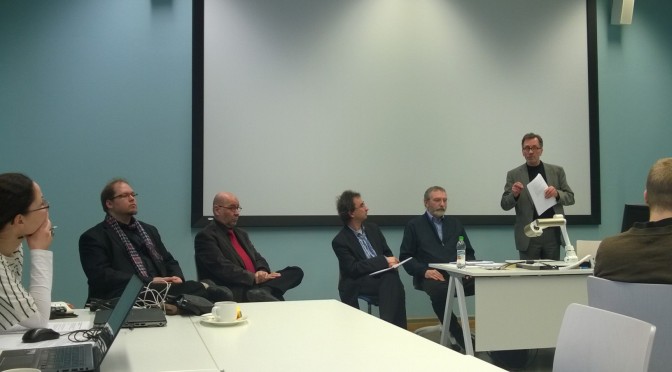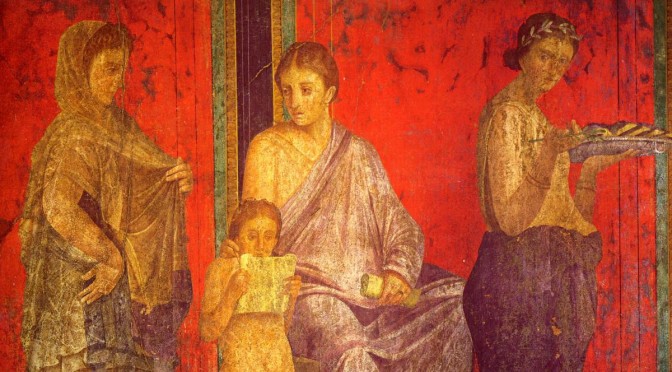Samuel Byrskog, Raimo Hakola, and Jutta Jokiranta, eds (2016) Social Memory and Social Identity in the Study of Early Judaism and Early Christianity. Novum Testamentum et Orbis Antiquus 116. Göttingen: Vandenhoeck & Ruprecht.
The concepts o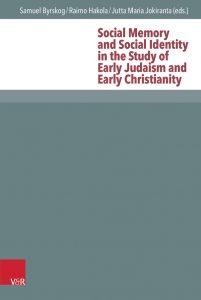 f social memory and social identity have been increasingly used in the study of ancient Jewish and Christian sources. In this collection of articles, international specialists apply interdisciplinary methodology related to these concepts to early Jewish and Christian sources. The volume offers an up-to-date presentation of how social memory studies and socio-psychological identity approach have been used in the study of Biblical and related literature. The articles examine how Jewish and Christian sources participate in the processes of collective recollection and in this way contribute to the construction of distinctive social identities. The writers demonstrate the benefits of the use of interdisciplinary methodologies in the study of early Judaism and Christianity but also discuss potential problems that have emerged when modern theories have been applied to ancient material.
f social memory and social identity have been increasingly used in the study of ancient Jewish and Christian sources. In this collection of articles, international specialists apply interdisciplinary methodology related to these concepts to early Jewish and Christian sources. The volume offers an up-to-date presentation of how social memory studies and socio-psychological identity approach have been used in the study of Biblical and related literature. The articles examine how Jewish and Christian sources participate in the processes of collective recollection and in this way contribute to the construction of distinctive social identities. The writers demonstrate the benefits of the use of interdisciplinary methodologies in the study of early Judaism and Christianity but also discuss potential problems that have emerged when modern theories have been applied to ancient material.
CONTENTS
RAIMO HAKOLA, SAMUEL BYRSKOG, AND JUTTA JOKIRANTA
Introduction
I Social Memory
SAMUEL BYRSKOG Lund University
Philosophical Aspects on Memory: Aristotle, Augustine and Bultmann
ALAN KIRK, James Madison University, USA
The Formation of the Synoptic Tradition: Cognitive and Cultural Memory Approaches to an Old Problem
SANDRA HÜBENTHAL, Universität Passau
Reading the Gospel of Mark as Collective Memory
KARI SYREENI, Åbo Akademi University
Eyewitness Testimony, First-Person Narration and Authorial Presence as Means of Legitimation in Early Gospel Literature
DAN NÄSSELQVIST, Lund University
Dual Conventions: The Oral Delivery of New Testament Writings in Light of First-Century Delivery Practices
II Social Identity
CECILIA WASSÉN, Uppsala University
The Importance of Marriage in the Construction of a Sectarian Identity in the Dead Sea Scrolls
JUTTA JOKIRANTA, University of Helsinki
Black Sheep, Outsiders, and the Qumran Movement: Social-Psychological Perspectives on Norm-Deviant Behaviour
ELISA UUSIMÄKI, University of Helsinki
Wisdom, Scripture and Identity Formation in 4QBeatitudes
RIKARD ROITTO, Stockholm School of Theology
Forgiveness, Rituals, and Social Identity in Matthew: Obliging Forgiveness
RAIMO HAKOLA, University of Helsinki,
The Johannine Community as a Constructed, Imagined Community
NINA NIKKI, University of Helsinki
Contesting the Past, Competing over the Future: Why is Paul Past-Oriented in Galatians and Romans, but Future-Oriented in Philippians?
MARTIN WESSBRANDT, Lund University
Covenant, Conflict & Collective Identity: The Relationship between Hebrews and 1 Clement

